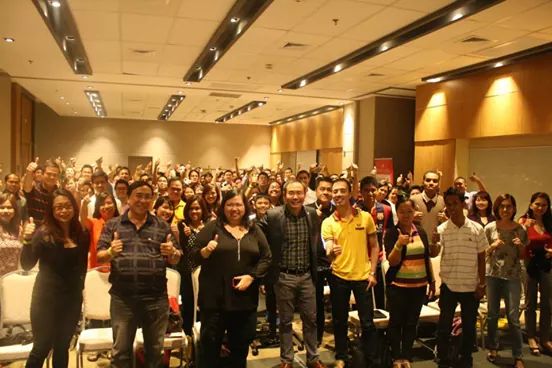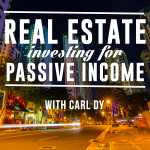Remember those e-mails where they ask you to answer a survey, but you don’t because: (a) you have no time, (b) you’re not interested, or (c) it might be a scam? Well, I was able to attend a seminar for free just because I took the time to answer a survey from Learning Curve. I have attended some of their events before and I always gain new knowledge.

Photo op with Carl Dy (front and center) and the attendees (that's me in the front, second from the right)
Last October 25, I attended the second batch of Carl Dy’s Make Money With Rental Properties. I specifically chose this seminar among the other great offerings by Learning Curve because this is the business that I want to be in. My parents have been making passive income from rental properties for as long as I can remember and I wanted to start doing the same.
Carl Dy is an architect by education. He is the President of Spectrum Investments, a property portfolio management company. He has over a decade of experience in the real estate industry working for property giant Ayala Land as Sales Director of Ayala Land Premier. [Fun fact: As he was introducing himself, he mentioned that he used to work in Palafox Associates, an architecture and planning firm where I am currently working as Communications Manager.]
There is so much to learn from the seminar and I identified 10 things that I want to share with you:
1. Investment puts money in your pocket. Liability takes money away. Just because something is of value doesn’t mean it’s automatically an investment. For example, a car is a liability because you pay for gas, repairs, etc. It only becomes an investment if you make money out of it, e.g. taxi.
2. Your home is your best property investment. It grows while you are able to use, enjoy, and create memories.
3. It’s not too late to invest in properties even if you are 45 years old.
4. Investment is not always about money. Intangible investments, like relationships, are also important for success.
5. Cash flow is the ultimate goal in rental properties. As much as possible, hold on to the properties you acquire unless you really need the money.
6. Property is easier to manage and profit is easier to compute, as compared to other businesses.
7. Before you start investing, make sure you have the following in order: improve your cash flow, get out of bad debt, set up an emergency fund, and get protected from life’s risks.
8. A property is VAT-exempt if it is valued at PhP 3.199 million and below.
9. There are different types of property ownership: sole ownership, equal partnership, industrial partner, investor, and leasing.
10. Questions to ask yourself to know if you are ready to buy a property includes: Do you have 10-20% for downpayment on hand? After paying monthly, would you have enough left for your other needs? Do you have an emergency fund? How much is the bank loan? Do you have an upcoming big expense? Do you have a negative debt bank record? Is your income documented? Is your source stable? Do you have an exit plan?
Overall, the seminar is quite an eye-opener for me in terms of gaining insight on the things I need to deal with in this type of business. It’s also an affirmation of the wisdom of my parents’ in choosing this business and following through with it to this day. I really hope that, with my newfound knowledge, I’ll be able to help my parents manage their rental properties and also be ready to start my own soon.
* If you are interested to attend a seminar on real estate investment, Learning Curve, together with Carl Dy, has come up with a 4-week workshop. It promises to be more hands-on, with valuable workshop activities to simulate actual property investing. You may visit http:// http://www.iluvlearning.com/real-estate-investing-for-passive-income/?utm_source=Learning+Curve+Master+List&utm_campaign=38dd0c7df3-REIPI_10_24_2014&utm_medium=email&utm_term=0_2476cff506-38dd0c7df3-408120793&ct=t(REIPI_10_24_2014)&mc_cid=38dd0c7df3&mc_eid=a9d2767e1d for more information.
